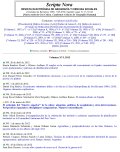Force, Fraud, and Coercion in Some Guatemalan Adoptions: High-profile Abduction Cases Challenge the ‘Best Interests of the Child’
Keywords:
Hague Convention on Intercountry Adoption, abduction, human trafficking, human rightsAbstract
Guatemala has an unfortunate and notorious history of intercountry adoption fraud, dating back to the war years (1960-1996) and continuing until The Hague Convention on Intercountry Adoption was ratified in 2007. Some child adoptions from the nation, mainly bound to the USA, have serious irregularities and/or illegal characteristics including force, fraud, and coercion. These human trafficking dynamics are considered with an emphasis on alleged child abduction cases in the context of violence against women and impunity. The involvement of human rights defenders and hunger protests are presented to illustrate the determination of three particular mothers and their advocates seeking justice for child abduction. A failure to move the cases forward due to the USA government’s unwillingness to collaborate on law enforcement is discussed, including dynamics of the hidden structures of organized crime. The best interests of the child principle is applied to child abduction for adoption.Downloads
Published
2012-03-22
Issue
Section
Articles
License
Los autores que publican en esta revista están de acuerdo con los siguientes términos:
- Los autores conservan los derechos de autoría y otorgan a la revista el derecho de primera publicación, cin la obra disponible simultáneamente bajo una Licéncia de Atribución Compartir igual de Creative Commons que permite compartir la obra con terceros, siempre que estos reconozcan la autoría y la publicación inicial en esta revista.
- Los autores son libres de realizar acuerdos contractuales adicionales independientes para la distribución no exclusiva de la versió de la obra publicada en la revista (com por ejemplo la publicación en un repositorio institucional o en un libro), siempre que se reconozca la publicación inicial en esta revista.





